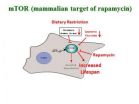(Press-News.org) JACKSONVILLE, Fla. — Mayo Clinic researchers have discovered an enzyme they say is tightly linked to how aggressive pancreatic cancer will be in a patient.
They say the study, published in Molecular Cancer Research, provides key insights into the most aggressive form of the disease, which is one of the deadliest human cancers.
It also offers a number of possible future clinical advances, such as a way to gauge outcome in individual patients, and insight into potential therapy to shut down activity of the enzyme, known as Rac1b.
"The implication from our research is that Rac1b is activating unique pathways in pancreatic tumors that make this cancer aggressive. If we can therapeutically target that pathway, we may be able to have an impact on this very difficult-to-treat disease," says the study's senior investigator, Derek Radisky, Ph.D., a researcher with the Mayo Clinic Cancer Center in Jacksonville, Fla.
A potential drug target would have to be found within the cancer-causing pathways activated by Rac1b, since the enzyme is difficult to target because it is involved in many normal biological processes, Dr. Radisky says. He and his colleagues are now working to uncover how Rac1b ramps up pancreatic cancer progression.
The RAC1 superfamily of proteins — which play important regulatory roles in cell growth and cell movement — have been implicated in other cancers, such as melanoma and non-small cell lung cancer, but before this study, no one knew that one sub-form, Rac1b, played a role in pancreatic cancer.
The research team includes investigators from Mayo Clinic in Florida and Mayo Clinic SPORE in Pancreatic Cancer, one of three cancer centers in the U.S. to receive a Specialized Program of Research Excellence (SPORE) grant for pancreatic cancer from the National Cancer Institute. The Pancreatic Cancer SPORE is specifically committed to reducing the incidence and mortality of pancreatic cancer. The team began their research by investigating why pancreatic cancer cells produce matrix metalloproteinases (MMPs), enzymes that break down the sticky adhesion molecules that keep cells glued together in a tissue, or in a tumor. MMPs allow cancer cells to migrate away from a tumor.
"Most MMPs are made by cells that surround and support a tumor, not by the tumor itself, as we see in pancreatic cancer," Dr. Radisky says.
Using a combination of human tissue biopsies, novel transgenic animal models and cell culture studies, the researchers established a link between expression of MMP3 and activation of Rac1b. Then, using Mayo Clinic's large panel of human pancreatic cancer biopsies, the scientists found that expression levels of Rac1b were significantly associated with the cancer's prognosis.
The researchers verified their findings by treating cultured pancreatic cancer cells with recombinant MMP3. They found this was sufficient to induce Rac1b and increased cancer invasiveness.
"Pancreatic cancer is not uniformly aggressive — some patients have a relatively better outcome. This work allows us to hone in on those patients who don't do as well, and who would most benefit from more targeted therapies," Dr. Radisky says.
INFORMATION:
The study was supported by the National Cancer Institute (CA122086, CA154387, R01CA159222 and R01CA136754), and by the Mayo Clinic SPORE in Pancreatic Cancer (P50 CA102701).
About Mayo Clinic
Recognizing 150 years of serving humanity in 2014, Mayo Clinic is a nonprofit worldwide leader in medical care, research and education for people from all walks of life. For more information, visit 150years.mayoclinic.org, MayoClinic.org or newsnetwork.mayoclinic.org/.
Molecule linked to aggressive pancreatic cancer offers potential clinical advances
2014-05-21
ELSE PRESS RELEASES FROM THIS DATE:
A quicker way to determine who's faking it on the Internet
2014-05-21
Researchers at the University of Montreal have developed an improved chemical analysis method that is more efficient and faster in detecting counterfeit medicines, which have skyrocketed in recent years. The method was developed and tested in a study by Philippe Lebel, Alexandra Furtos and Karen Waldron of the university's Department of Chemistry. It identifies and quantifies the various compounds present in a pharmaceutical product, in a fifth of the time it takes governmental services to do the same job. "Fake drugs are a scourge for public health," says Lebel. Once a ...
Compound reverses symptoms of Alzheimer's disease in mice, SLU research shows
2014-05-21
ST. LOUIS -- A molecular compound developed by Saint Louis University scientists restored learning, memory and appropriate behavior in a mouse model of Alzheimer's disease, according to findings in the May issue of the Journal of Alzheimer's Disease.
The molecule also reduced inflammation in the part of the brain responsible for learning and memory.
The paper, authored by a team of scientists led by Susan Farr, Ph.D., research professor of geriatrics at Saint Louis University, is the second mouse study that supports the potential therapeutic value of an antisense compound ...
Vitamin E in canola and other oils hurts lungs
2014-05-20
CHICAGO --- A large new Northwestern Medicine® study upends our understanding of vitamin E and ties the increasing consumption of supposedly healthy vitamin E-rich oils -- canola, soybean and corn – to the rising incidence of lung inflammation and, possibly, asthma.
The new study shows drastically different health effects of vitamin E depending on its form. The form of Vitamin E called gamma-tocopherol in the ubiquitous soybean, corn and canola oils is associated with decreased lung function in humans, the study reports. The other form of Vitamin E, alpha-tocopherol, ...
Researchers test whether Red Queen hypothesis makes species resilient
2014-05-20
In Lewis Carroll's 1871 classic novel Through the Looking Glass, the Red Queen tells Alice: "Now, here, you see, it takes all the running you can do, to keep in the same place."
Over the years, evolutionary biologists have used the Red Queen's statement to refer to the "Red Queen" hypothesis, which describes how living organisms, including humans, manage to survive in a changing environment by adapting through sexual reproduction. According to a University of Iowa researcher, the hypothesis is supported.
In a paper published in the journal Biology Letters, lead author ...
Shale development generally helps local government coffers
2014-05-20
Oil and gas development from shale fields has generally helped the public finances of local communities, providing new revenues and resources that usually -- but not always -- outweigh the increased demand for public services and other costs, according to a new analysis from two Duke University researchers.
Daniel Raimi and Richard Newell gathered data from communities surrounding 10 oil and gas "plays" from September 2013 through February 2014, traveling to Arkansas, Colorado, Louisiana, Montana, North Dakota, Pennsylvania, Texas and Wyoming to interview local officials ...
'Supermodel' mouse reveals mechanisms that regulate metabolism, researchers find
2014-05-20
DALLAS – May 20, 2014 – A lean "Supermodel" mouse type has revealed the potentially critical role played by a largely unknown gene that regulates metabolism, findings that could provide new insight into diseases ranging from diabetes to obesity, a new study by UT Southwestern Medical Center researchers suggests.
The Supermodel mouse's phenotype – the physical characteristics that result from its gene makeup – include being very small in size, with an unusual body form caused by abnormal distribution of fat, said Dr. Zhe Chen, Assistant Professor of Biophysics, and ...
Research explains action of drug that may slow aging and related disease
2014-05-20
CORVALLIS, Ore. – A proven approach to slow the aging process is dietary restriction, but new research in the Linus Pauling Institute at Oregon State University helps explain the action of a drug that appears to mimic that process – rapamycin.
Rapamycin, an antibiotic and immunosuppressant approved for use about 15 years ago, has drawn extensive interest for its apparent ability – at least in laboratory animal tests – to emulate the ability of dietary restriction in helping animals to live both longer and healthier.
However, this medication has some drawbacks, including ...
Shrub growth decreases as winter temperatures fluctuate up
2014-05-20
Many have assumed that warmer winters as a result of climate change would increase the growth of trees and shrubs because the growing season would be longer. But shrubs achieve less yearly growth when cold winter temperatures are interrupted by temperatures warm enough to trigger growth.
"When winter temperatures fluctuate between being cold and warm enough for growth, plants deplete their resources trying to photosynthesize and end the winter with fewer reserves than they initially had. In the summer they have to play catch up," said Melanie Harsch, a University of Washington ...
Game changer: Patients of doctors who played online game had better control of blood pressure
2014-05-20
Boston, MA – Primary care providers who engaged in an online game to solve clinical cases about hypertension management improved blood pressure control of their patients in a shorter amount of time compared to non-gamers, according to a new study by researchers at Brigham and Women's Hospital (BWH) and the Veterans Affairs Boston Healthcare System.
The study was published May 20, 2014 in Circulation: Cardiovascular Quality and Outcomes.
"This study is the first to show that an online educational game among medical professionals can improve the health measures of their ...
Screen of existing drugs finds compounds active against MERS coronavirus
2014-05-20
WHAT:
Clinicians treating patients suffering from Middle East respiratory syndrome (MERS) currently have no drugs specifically targeted to the MERS coronavirus (MERS-CoV), a virus first detected in humans in 2012 that has since caused 614 laboratory-confirmed infections, including 181 that were fatal, according to the World Health Organization. The case count escalated sharply in the spring of this year, and the first cases in the United States were announced in early May. To address the urgent need for therapies, researchers supported by the National Institutes of Health ...





